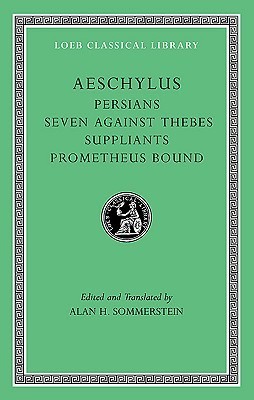
The Oresteia: Agamemnon, The Libation Bearers, The Eumenides
Book Description
Blood spills beneath the shadow of betrayal as the saga of vengeance unfolds in a haunting world where justice is a double-edged sword. Agamemnon returns from war to a home steeped in deceit and darkness, igniting a chain reaction of treachery that tests the bonds of family and honor. As opposing forces clash, a gripping struggle ensues between the thirst for revenge and the quest for redemption. Whispers of fate tighten their grip, echoing through the ages. Will the cycle of violence shatter, or will the past consume them all? Prepare for a confrontation that will leave hearts racing and souls questioning.
Quick Book Summary
"The Oresteia" by Aeschylus is a trilogy of Greek tragedies that explore the destructive cycle of vengeance within the royal family of Argos. The story begins with King Agamemnon's return from the Trojan War, only to be murdered by his wife, Clytemnestra, in retribution for his sacrifice of their daughter, Iphigenia. Orestes, their son, returns to avenge his father's death by killing Clytemnestra, thus perpetuating the blood feud. Pursued by the Furies—ancient deities of vengeance—Orestes finds himself tormented until the goddess Athena intervenes and establishes a new system of justice to replace personal retribution. Through themes of fate, justice, and morality, the trilogy probes the evolution from endless cycles of violence to the birth of civilized law.
Summary of Key Ideas
Table of Contents
The Cycle of Vengeance and Retribution
The trilogy unfolds with Agamemnon’s victorious return from Troy, where he sacrificed his daughter for favorable winds. Clytemnestra, his wife, fueled by rage and grief, conspires with her lover Aegisthus to murder Agamemnon as retribution. Her actions set in motion a cycle of bloodshed, embodying the inescapable nature of vengeance in ancient societies, where personal wrongs demand violent redress. The first play establishes the themes of familial betrayal and the peril of unchecked retribution.
The Conflict Between Old and New Forms of Justice
Orestes, Agamemnon’s exiled son, returns secretly to Argos in "The Libation Bearers", driven by filial duty and a command from Apollo. He reunites with his sister Electra and together they plot Clytemnestra’s death. Orestes kills both Clytemnestra and Aegisthus, but his triumph is short-lived. He is immediately haunted and pursued by the Furies, spirits representing the ancient order of blood vengeance, emphasizing how the quest for justice through personal revenge only perpetuates suffering and moral confusion.
The Role of the Gods and Fate
With "The Eumenides", the focus shifts towards the tormented Orestes as he seeks purification from his crimes. Hounded by the relentless Furies, Orestes flees to Athens, where he supplicates Athena for salvation. The conflict between the old ways of blood-vengeance (represented by the Furies) and new principles of justice (embodied by Athena and reason) comes to a head, showcasing the tension between archaic religious customs and emerging civic institutions.
Transformation from Personal Revenge to Civic Justice
The trilogy culminates in the world’s first trial, as Athena establishes a court to adjudicate Orestes’ guilt. The jury’s split verdict signals a transition: Athena persuades the Furies to accept a new role as protectors of justice rather than its avengers. This act transforms the relentless cycle of retribution into a system based on law, reason, and communal decision-making, marking a turning point in the conceptualization of justice.
Guilt, Purification, and Redemption
Ultimately, "The Oresteia" moves from darkness to hope, exploring the power of redemption and the possibility of societal progress. The characters’ suffering and choices highlight themes of guilt, inherited curse, moral growth, and the difficult birth of forgiveness. Aeschylus’s trilogy thus serves both as a dramatic tale of mythic revenge and a profound meditation on the emergence of civil order from violent chaos.
Download This Summary
Get a free PDF of this summary instantly — no email required.





